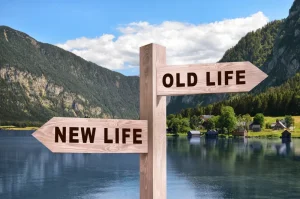
Although recovery housing can be a useful and important step along the continuum of substance use disorder recovery care, many individuals do not utilize this resource. There are many reasons someone may choose not to live in recovery housing, including financial limitations (insurance rarely covers sober living environments) and social challenges. The researchers also noted that outpatients who elected to live in recovery housing were more likely to be younger, female, and have greater history of treatment utilization.
- Treatment programs are accredited by the Commission on Accreditation of Rehabilitation Facilities (CARF), NAATP , and LegitScript certified.
- Feeling supported, accepted and loved as a person of value and worth can foster and nurture hope.
- No U.S. service member deaths were reported in 2022, Defense Department data shows.
- As the National Institute on Drug Abuse (NIDA) states, peer support programs during and following treatment can help maintain abstinence.
- Once you have a more complete understanding of yourself and how your mind and body operate, you’ll be able to take the wheel and guide yourself back on course before things get too out of balance.
- We’re also dedicated to helping you find the residential treatment facility that provides the optimal setting in which an adult with psychiatric illness can restore his or her mental health.
Explore Top Treatment Destinations
Or, perhaps you have been through rehab before and relapsed shortly after returning home because your family members continued to use alcohol or drugs around you. So you learned that you need more time after leaving rehab to work on resistance skills and believe that a sober living home can give you the benefit of several months in a drug-free environment with peer support. One of the most important things to think about is why you want to go to a sober living home because those reasons will likely influence your length of stay.

Sober Living Homes: A Strong Support System
Residents may sleep in dorms, and attendance can be court-ordered for a set period. Here you will find information about sober living houses, what they do, and how you, or your loved one, can take full advantage of the support on offer and enjoy a life free from addiction. Before entering a sober living environment, a person will most likely be tested to ensure they are alcohol and drug-free prior to entering the residence. The Supportive Housing for People with Disabilities Program (Section 811) https://ecosoberhouse.com/article/why-do-alcoholics-crave-sugar-in-recovery/ is a federal program dedicated to developing and subsidizing rental housing for very or extremely low income adults with disabilities, like a chronic mental illness. The biggest difference between this program and similar ones is that it provides housing specifically for the disabled and ensures that all housing has access to appropriate supportive services like case management and employment assistance. Ideally, this means you would have to pay no more than 30% of your income for housing costs.

How Can I Pay for a Sober Living Home?
The survey ranked Biden as the 14th best president in U.S. history, and put Trump last. But because it was voluntary, 38% of all Medicare drug plans, including Medicare Advantage plans, participated in 2022, according to KFF. Trump’s voluntary plan also covered only one form of each dosage and insulin gratitude house sober living residence type. When he was president, Trump instituted the Part D Senior Savings Model, a program that capped insulin costs to $35 a month for some older Americans in drug plans that chose to participate. The price of insulin for Medicare enrollees starting in 2023 dropped to $35 a month, not $15.

Length of Stay in a Transitional Sober Living Home
Sober Living FAQs
- At the Mamie George Community Center at 111 Collins Road in Richmond and the Beacon of Hope Center at 4700 Broadway in Galveston.
- A halfway house is commonly known as a type of recovery housing that helps people in incarceration transition from addiction treatment to a more independent, healthy lifestyle.
- The daughter and grandchildren of one incoming resident came to tour the recovery residence recently.
- The group is open to people who are in recovery or want to be in recovery, people with disabilities and people with mental health challenges.

